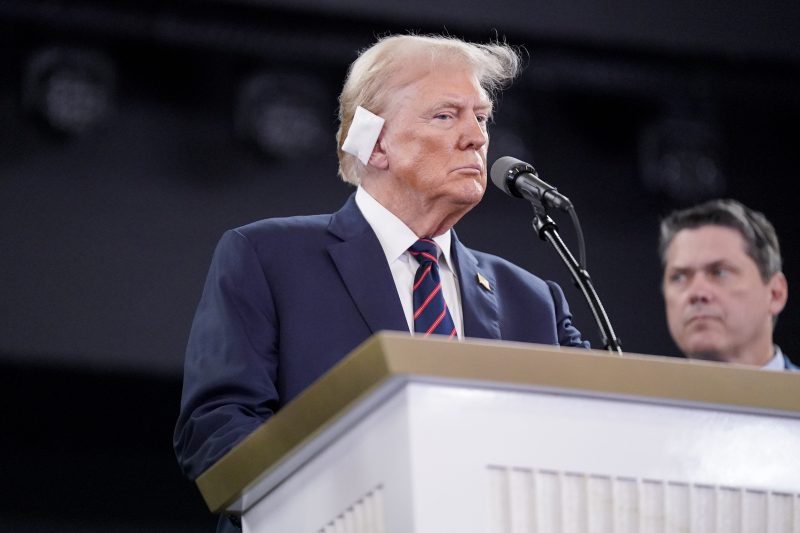In the realms of American politics, the Republican National Convention (RNC) serves as a pivotal platform for the communication of party values, policy agendas, and electoral strategies. Amidst the backdrop of a rapidly changing political landscape, the upcoming RNC convention promises to offer a unique insight into the future trajectory of the Republican Party under the leadership of former President Donald Trump.
Donald Trump, a polarizing figure in contemporary American politics, remains both influential and divisive within the Republican ranks. Having shaped much of the party’s recent platform with his unapologetic populism and nationalist rhetoric, Trump’s address at the RNC convention is highly anticipated by supporters and detractors alike. The significance of his speech lies not only in its content but also in its potential to reassert his dominance within the party and set the tone for the upcoming electoral cycle.
One of the primary themes expected to feature prominently in Trump’s address is the notion of a fully consolidated party. This term encapsulates Trump’s vision of a Republican Party united behind his leadership, devoid of internal dissent and opposition. By emphasizing the need for unity and solidarity, Trump seeks to rally his supporters and project an image of strength and coherence to the wider electorate.
The concept of a fully consolidated party also hints at Trump’s ongoing efforts to reshape the Republican Party in his own image. Through endorsements, primary challenges, and public statements, Trump has made it clear that he expects loyalty and alignment from party members at all levels. The RNC convention offers him a prime opportunity to reaffirm this expectation and assert his influence over the party’s direction.
However, the notion of a fully consolidated party is not without its challenges and controversies. While Trump remains immensely popular among a significant segment of the Republican base, there are also voices of dissent and resistance within the party. Critics argue that Trump’s approach risks alienating moderate voters, undermining traditional conservative principles, and perpetuating division within the party.
Moreover, the specter of Trump’s defeat in the 2020 presidential election continues to loom large over the Republican Party. The aftermath of the election saw Trump and his allies propagate baseless claims of voter fraud and election irregularities, culminating in the storming of the Capitol by a violent mob of his supporters. The fallout from these events has left the party grappling with internal discord, public backlash, and a tarnished reputation.
Against this backdrop, Trump’s address at the RNC convention assumes even greater significance as a test of his leadership and influence within the party. By articulating a vision of a fully consolidated party, Trump seeks to rally his supporters, assert his control over the party apparatus, and position himself as the de facto leader of the Republican Party. However, the road to consolidation is fraught with challenges, both from within the party and from external forces seeking to hold Trump and his followers to account.
In conclusion, the upcoming RNC convention promises to be a pivotal moment in the ongoing saga of the Republican Party under the shadow of Donald Trump. As he prepares to address a fully consolidated party, Trump faces a critical juncture in his quest to reshape the party in his image and secure his legacy as a transformative figure in American politics. The outcome of his speech and the response it elicits will reverberate far beyond the convention hall, shaping the future of the Republican Party and the broader political landscape for years to come.
